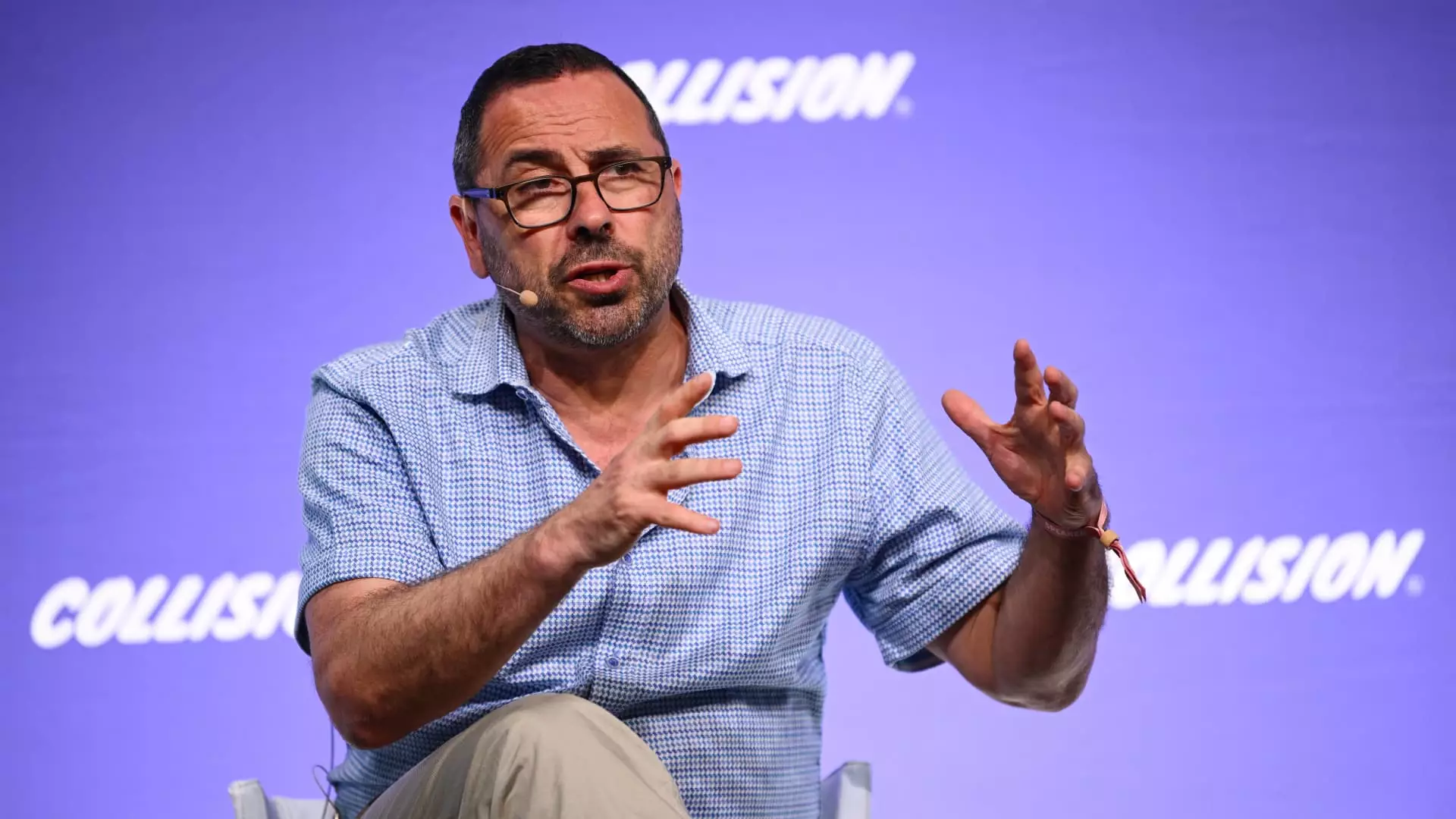Cerebras Systems, a pioneering startup in the artificial intelligence (AI) chip manufacturing space, has recently taken significant steps towards an initial public offering (IPO). With aspirations to trade on the Nasdaq under the ticker “CBRS,” Cerebras is gearing up to make a splash in a domain where competition is fierce and innovation is paramount. Established in 2016 in Sunnyvale, California, the company is led by co-founder and CEO Andrew Feldman, who has prior experience selling the server venture SeaMicro to AMD for $355 million. This impressive pedigree sets the stage for Cerebras’s aggressive tactics as it seeks to carve out a niche in the rapidly expanding AI chip market.
Cerebras is going head-to-head with industry titan Nvidia, whose graphics processing units (GPUs) have long been the standard for AI training and operational tasks. Cerebras claims its flagship WSE-3 chip is a game-changer, boasting more cores and memory capacity than Nvidia’s widely-used H100 chip, albeit with a considerably larger physical footprint. As AI applications continue to proliferate across various sectors, the demand for high-performance chips has never been higher. Furthermore, Cerebras is not limiting itself to chip production alone; the company is also venturing into cloud services based on its own computing clusters.
However, the road ahead is contested. Major players like Amazon, Google, and Microsoft are developing their own proprietary chips, intensifying the competition and raising the stakes for Cerebras. The company cites not only Nvidia but also AMD and Intel among its adversaries. Additionally, custom-built application-specific integrated circuits pose a constant threat from private enterprises aiming to solidify their foothold in this lucrative market. As the landscape evolves, Cerebras must demonstrate its ability to innovate while addressing the specific needs of its clientele.
Cerebras’s financial health presents a mixed picture as it files for its IPO. In the first half of 2024, the company reported a net loss of $66.6 million against $136.4 million in revenue, showing a slight improvement compared to the previous year when losses were steeper. However, this upward trajectory is juxtaposed against escalating operational expenditures, largely attributed to the higher personnel costs needed to facilitate anticipated revenue growth.
One notable revenue stream emerge from its relationship with Group 42 (G42), a UAE-based AI firm and a significant contributor to Cerebras’s income, accounting for a staggering 83% of the company’s revenue last year. G42 is committed to purchasing a substantial $1.43 billion in orders before March 2025, a deal that underscores the symbiotic relationship between both firms. As the startup relies heavily on this partnership, any disruption in supply chains, which it has explicitly warned investors about, could jeopardize financial stability and affect future projections.
The IPO landscape in 2024 has been insufficiently populated, marred by rising interest rates steering investors towards more lucrative and profitable offerings. Despite a lack of participation from significant investment banks such as Morgan Stanley and Goldman Sachs, Citigroup and Barclays have stepped up to spearhead the Cerebras offering.
With several tech-focused companies like Reddit and Rubrik recently entering the public realm, Cerebras’s timing may either be a calculated risk or an unfortunate miscalculation. While the Federal Reserve’s recent rate cuts have sparked optimism in tech indices, it is clear that the company must navigate through a cautious investment climate.
Cerebras’s diverse investor backing, which includes influential figures like OpenAI’s CEO Sam Altman and veteran entrepreneur Andy Bechtolsheim, adds credibility to its ambitions as it heads towards public trading. Nonetheless, the true measure of success will not only rely on its IPO launch but also on its capacity to innovate and effectively compete in an ever-crowded marketplace.
A Future Ripe with Potential Challenges
As Cerebras stands at the precipice of becoming a public entity, the challenges it faces are multifaceted, ranging from stiff competition and dependency on key partnerships to managing heightened operational costs. However, if it can leverage its unique value proposition and sustain its innovative edge, Cerebras has the potential not just to join the ranks of leading tech firms but to redefine the benchmarks in the AI chip sector. By navigating these complexities adeptly, the startup may emerge not only as a competitor to Nvidia and its ilk, but as a transformative force in the AI landscape, appealing to an investor market increasingly hungry for innovation.


Leave a Reply